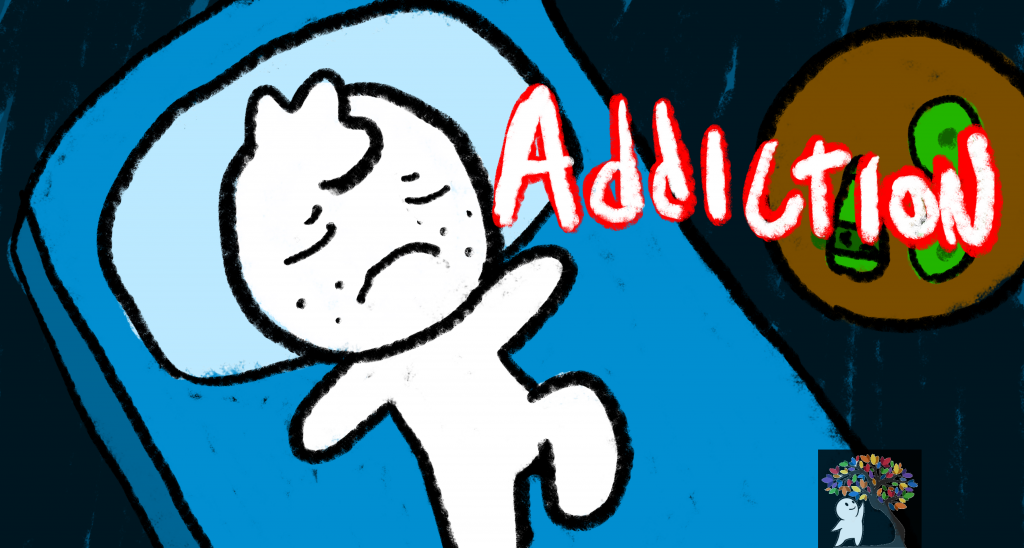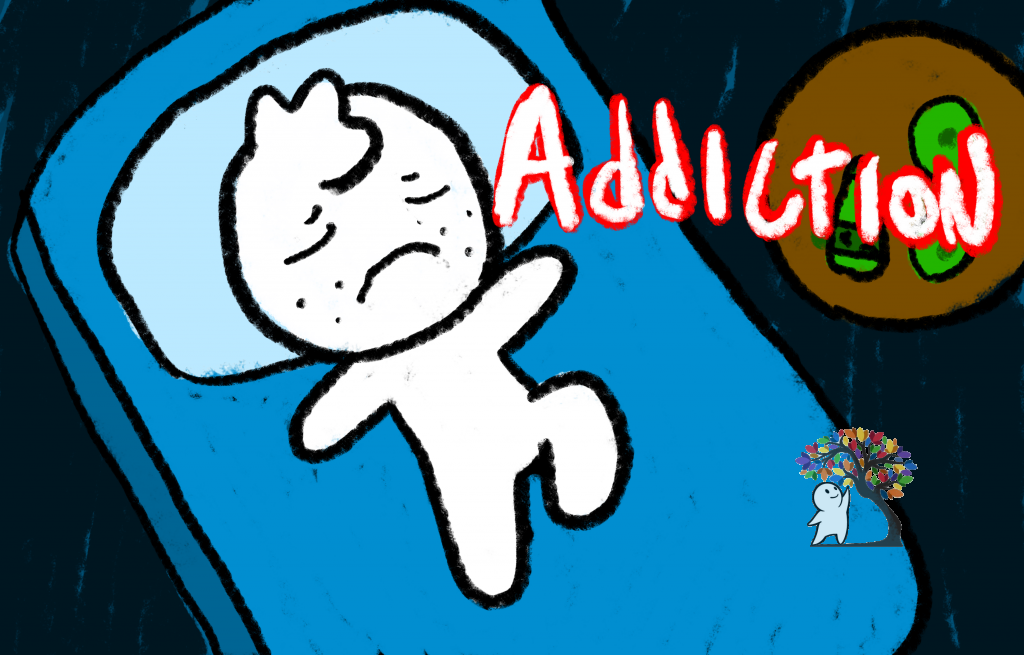6 Signs of An Addictive Personality

Hi there Psych2goers, this is a disclaimer that this article is for informative purposes only. It is not to provide mental health advice, or to diagnose and treat any condition. If you are struggling, please reach out to a qualified mental health professional or healthcare provider.
Addiction is a serious problem that can affect every area of your life; as if your whole world revolves around your addiction. While many people associate addiction with mental health issues, impulsivity, and getting involved with the wrong crowd – which may be part of the issue – it can also come down to having an addictive personality. Simply put, some people are more prone to addictive tendencies than others. To explore more about addiction and certain tendencies, in this article, we’ll be taking a look at six signs of an addictive personality.

What Is Addiction?
Addiction is defined by having an intense interest and craving in a substance/activity that causes pleasure, stress relief, and/or performance improvement. Typically substances such as alcohol, drugs, to even food are consumed. It can also include activities such as gambling, sex, or even excercise. While the substances and activities can range from obviously harmful to seemingly harmless, addiction is inherently problematic no matter the form. Think: too much of anything is a bad thing. There’s usually a sense of craving or desire to partake in using a substance or activity, and a negative withdrawal feeling when you’re unable to do so. Generally speaking, you may be unsuccessful in trying to reduce or stop your activity. Tolerance happens when you need more of something to get the same effects as time goes on. This addiction can get in the way of your relationships, health, and mental wellbeing (American Psychiatric Association 2020).
With that said, here are a few signs of an addictive personality. Please note this is not a comprehensive list that includes every situation. Some people may relate to these entirely, differently, or have other signs.

1. You Have a Difficult Time Self-Regulating
Lacking the ability to self regulate is believed to be a part of an addictive personality. You may struggle with knowing when to stop in a given situation. While this can certainly apply to substances such as smoking, drinking, gambling, and so forth, it can show itself in any situation that involves a reward response. The fight for pleasure and thrill seeking in any area can become intense, making it hard to give up early. Self-regulation issues tend to go hand in hand with impulsivity, making it impossible to know when enough is enough (Crane 2020).

2. You’re Related To Someone With an Addiction Problem
Genetics play a huge role in many areas of our lives with much of our personality as traits get passed down from generation to generation. Addictive tendencies may be passed down in this manner as well with many addicted individuals having a close relative dealing with a similar addictive issue, and in many cases, with the same substance. This is not to say, however, that having a relative with an addiction problem guarantees that you will develop one. A blend of genetics and environmental factors are believed to be the main contributors to addiction. Some people may still develop an issue without a relative, while some people with one does not (Cohen 2015).

3. You Experience Other Mental Health Conditions
Self-medication and/or coping mechanisms can become out of control and develop into addictions. Many people with addictive tendencies often have other issues in areas such as: depression, anxiety, personality disorders, and psychotic disorders, just to name a few. The reward response with dopamine (“feel good” hormone) release can temporarily relieve you from personal life issues, which causes people to return to their habits. However, going this route can lead into addiction and other health problems, as well as interpersonal and intrapersonal issues . It is best to receive treatment from a qualified mental health professional rather than self-medicating (Crane 2020).

4. You Feel Apathetic
Feeling apathetic can come with a number of causes. Maybe it’s the result of a mental health condition, or perhaps it’s having a risk-taking personality and needing higher level thrills to feel excitement, or some other reason. In any case, having little care about risks or consequences are linked to an addictive personality. When you feel that there’s nothing much to lose, then it’s easier to make a big decision that can have life altering consequences (Crane 2020).

5. You Have Other Certain Personality Traits
Having an addictive personality is far from a “one size fits all” scenario. People who are adventurous and thrill-seeking may turn to substances or activities that elevate dopamine levels at a higher rate as they find it difficult to get the same feeling out of “mundane” less risky activities. Similarly, people who are more disconnected and anxious may turn to certain activities in a way to cope with their feelings; they may try to self-medicate and numb their feelings with a substance or activity. As well, obsessive compulsive types may find themselves in a similar issue; they have the potential to form habits and maintain them out of compulsion. In any case, evidence suggests that addictive personalities come with patterns seen in other personality traits (Crane 2020).

6. You Are Impulsive
People with addictive problems may find themselves acting on impulse. Making quick decisions without thinking of consequences can lead to serious problems later on. Having issues with self-regulation can further escalate this issue as well as feeling apathetic. It can be easy to make a decision in the moment that has negative consequences later on (Cohen 2015).

Addiction can be life-altering and all encompassing. However, it is a complex issue and comes down to both primarily genetic and environmental factors. If you are struggling, it is best to reach out for help. Addiction is treatable and getting the proper help can be the first step into getting to a better life. What are your thoughts about the matter? Is there anything you have to add to the conversation? Let us know in the comments, and as always, take care.
References:
- American Psychiatric Association. (2020). What Is Addiction? www.psychiatry.org/patients-families/addiction/what-is-addiction
- Cohen, M. (2015, July 24). Do You Have an Addictive Personality? WebMD. www.webmd.com/mental-health/addiction/features/do-you-have-addictive-personality#2
- Crane, M. (2020, July 9). What Are the Traits of an Addictive Personality? | Do You Have One. American Addiction Centers. americanaddictioncenters.org/the-addiction-cycle/traits-of-an-addictive-personality
- SciShow. (2016, April 6). Is There Such a Thing As An Addictive Personality? [Video]. YouTube. www.youtube.com/watch?v=VbdCd2TyAo0


Responses